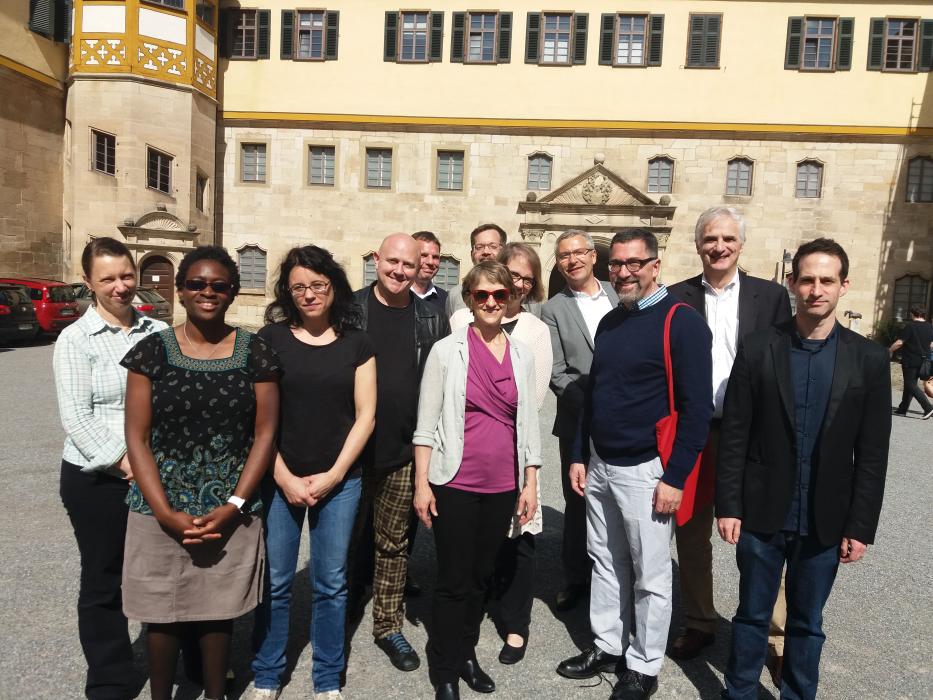News
16.05.2017
Risky Understanding: Summer School on Aesthetics, Responsibility, Communication at University of Tübingen
On Monday, May 15, researchers from the University of Tübingen welcomed 11 of their colleagues from the University of North Carolina at Chapel Hill. The American scholars from German and Media Studies came to Tübingen for a one-week Summer School under the title “Risky Understanding: Aesthetics, Responsibility, Communication.”
The Summer School extends and deepens the existing research collaboration between the Media Studies and German Departments of the University of Tuebingen and the University of North Carolina at Chapel Hill (UNC). The previous thematic focus of the cooperation between both our universities centered on specific conditions of understanding within changing environments of mediated communication.
The two central concepts that proved fundamental to reflect upon concrete processes of communication and understanding in all their salient aspects have been the concepts of ambiguity and multimodality. Depending on the respective context and function, however—within literature, for instance, as opposed to within everyday life—ambiguity and multimodality have both invited rather different evaluations. From a very general point of view, aesthetic or literary contexts can be understood as a kind of laboratory to generate—and to experiment upon—the most complex semiotic tools to differentiate meaning within societies. These tools could then be used in everyday situations to achieve certain communicative ends.
Exploring this line of inquiry further, the upcoming Summer School will emphasize related problems of ethics connected to all kinds of mediated discourse. In particular, various forms of persuasive practices will be foregrounded between the two poles of instrumental communication and aesthetics. Persuasion is thus understood in a rather broad sense, including all kinds of indirect influence by means of cultural or political norms or values; sometimes, those can only be observed in hindsight even by the agents involved.
On Thursday, May 18, 2017, 6 p.m., two public lectures at the archaeology lecture hall in Schloss Hohentübingen will investigate these relations from a historical perspective:
Jonathan Hess (UNC German): “Deborah and Her Sisters: How One Nineteenth-Century Melodrama and a Host of Celebrated Actresses Put Judaism on the World Stage”
Olaf Kramer (Tübingen Rhetoric): “Written Life: Rhetorical Configurations in Goethe’s Poetry and Truth”
Klaus Sachs-Hombach

